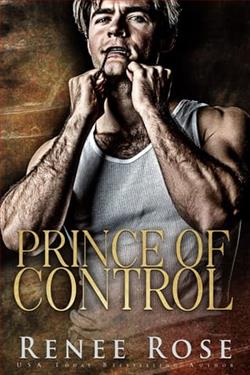Page 5 of Lost Love Cove
The children and dogs tumbled back toward the blanket in a flurry of panting and flushed cheeks. Luna flopped onto the sand with her tongue lolling, while Muttley nosed curiously at the basket until Cody tugged him away.
“Sit,” Carrie instructed, giving the dogs a firm glance. To her surprise, both obeyed with the earnestness of children caught misbehaving. She smiled, then handed plates to Maggie and Cody, watching as they piled muffins and fruit onto them without hesitation.
The sunlight streamed over the cove, filling every surface with a warm glow. Carrie poured herself a cup of coffee and eased back onto the blanket, her coffee warm between her hands, savoring the stillness of the moment.
“So, Cody,” Carrie asked gently, not wanting to press but curious, “where do you go to school?”
Cody swallowed a bite of muffin and smiled exuberantly at her before saying proudly, “In Boston. We live in Beacon Hill. It’s close to school, and Grampy says it’s a good neighborhood.”
“Beacon Hill,” Carrie repeated softly. She knew it well — red brick, gas lamps, tree-lined streets, the kind of place that carried history in its bones. “That sounds lovely.”
Cody nodded and reached for a piece of fruit. “It is. My mom and I live with Grampy. It’s easier that way. Everything’s closer at Grampy’s house than our house was.” He shrugged. “Well, not mom’s work though.” His eyes met Carrie's. “Mom works at Harvard.”
Carrie opened her mouth to comment, but Maggie, quick as always, leaned forward with the bluntness only children could manage. “Where’s your dad?”
Carrie’s breath caught. Cody froze, his fork clinking softly against his plate. His eyes shifted, and they filled with dark emotion. His voice dropped when he answered. “He died. Three years ago.” His eyes dropped to his hands. “He was a detective and died while protecting the city.” His head lifted. “He was a hero.”
The words hung in the air like a stone dropped in still water.
Carrie’s heart tightened, a pang of guilt rising. She should have redirected, spared him that sharp reminder.
“Yes, he was,” Carrie stated.
Before she could say more, Maggie’s small voice rushed in, unpolished but sincere. “I’m sorry about your dad. I don’t have a dad either.”
Cody blinked, surprise flickering across his face. “Did he die too?”
Maggie shook her head. And the look in her granddaughter’s eyes had her taking in a sharp breath. It was filled with hurt and a flash of anger.
“No,” Maggie’s voice was sharp. “He just left us. He didn’t want to be a family anymore.” She looked down for a heartbeat.
Silence crashed between them like breaking glass. Carrie stared at her granddaughter, gut-punched by the raw hatred in Maggie's voice. Not once—not ever—had Maggie mentioned her father before. The memory surged through Carrie like wildfire: Tessa sobbing on her kitchen floor at 2 a.m., clutching printouts of explicit emails between Professor Mark Green and his twenty-two-year-old research assistant. The divorce papers Mark had signed without even reading them. The way he'd surrendered hisdaughter's future with the same casual indifference he might use to decline a dinner invitation. Mark had then taken off to Oxford without a backward glance, while Tessa legally erased his name from Maggie's life. Carrie's hands trembled with fury. Someone had poisoned her granddaughter's heart with ugly truths—and it sure hadn't been Tessa.
Before Carrie could comment, Maggie’s eyes brightened as she turned to look at Carrie, pride shining in her eyes. “My gran also works for the police.” She glanced back at Cody. “She’s the Nantucket police captain.”
Cody studied her, the shadows easing as curiosity replaced them. “Really?”
“Yes.” Maggie’s tone was proud, the sting of her previous admission smoothed by the certainty in her voice.
Cody reached for a grape. “My grandma used to have a sailboat. Grampy sold it after she passed away. Four years ago.”
Carrie's chest ached at the weight of loss folded into Cody’s small, matter-of-fact words. She recognized that hollow space in his voice—had heard it in her own when discussing her shooting. Part of her wanted to reach across the blanket, to tell him she understood grief's landscape. But would that help or just reopen wounds? Carrrie hesitated, caught between professional instinct to investigate and the grandmother's urge to protect. His father, his grandmother—both gone. Her throat tightened. She had no right to dig here and decided it was time to lighten the mood.
Carrie set her coffee mug down and forced a lighter note. “I think the dogs are waiting for someone to throw a stick.”
That was all it took. The heaviness lifted—no, not lifted, but shifted sideways, like a weight redistributed rather thanremoved. Maggie leapt to her feet, Cody followed, and they both raced off down the beach with Luna and Muttley tearing after them. Their laughter rose again, quick and unbroken, carried by the sea breeze while Carrie's smile felt like a mask she couldn't quite secure.
Carrie leaned back on her elbows, letting the sun warm her face while her mind churned cold. She watched them with a softness in her chest that hurt and healed at the same time, love and dread tangled like seaweed. Children had a way of surviving, yes, but at what cost? Finding joy between the cracks of grief didn't mean the cracks weren't widening. Maggie's words still echoed, proof that her granddaughter carried pieces of hurt she had never voiced—and what else might be hiding behind that bright smile?
Carrie's stomach knotted as she watched Maggie splash in the shallows, her laughter masking something darker that had flashed raw and bleeding in those words about her father. The memory sliced through her—Maggie in that pink dress last fall, corsage pinned carefully to her wrist, waiting for Trent to take her to the father-daughter dance. Her FBI uncle in his best suit, badge tucked away. The photograph Tessa had sent Carrie flashed through her mind. She had known something about the photo had bothered her, but she’d brushed it off, and now she knew. Maggie’s smile hadn’t quite reached her eyes in the picture Tessa had taken of her twin brother and daughter on their way to the father-daughter dance.
Carrie's jaw clenched so hard her teeth ached. She remembered the conversation with Tessa a few weeks later about how she didn’t quite know what had gotten into Maggie as she’d started acting out. Tessa had thought it was because Sara, Maggie's best friend and neighbor since they were babies, had recently movedto California. Another memory hit her of last Christmas when Tessa, Maggie, and Trent had come to Nantucket. Tessa was teasing Trent about the new woman in his life. How this one might just be the one to get him to tie the knot. Then they would have little Trent babies running around. Carrie had stuck up for her son, telling him he’d be a great father one day. Maggie had slammed the dishes in her hands down and run upstairs, locking her bedroom door and not coming out for an hour. Tessa had said Maggie’s probably just jealous because she doesn’t want her uncle’s attention to be taken away from her, and she’s missing her best friend, and her daughter is becoming a tween.
But Carrie saw it now, with the horrifying clarity of a detective arriving too late at a crime scene. Every outburst, every slammed door, every silent treatment—they weren't just childish tantrums but evidence she'd failed to process. The rage inside Maggie wasn't just simmering; it was a wildfire consuming her from within, and Carrie's stomach twisted into knots of self-loathing. She made a mental note to call Tessa later when Maggie was in bed.
Carrie’s gaze shifted to Cody, his small frame running full tilt across the sand, his arms pumping as if he could outrun everything behind him. Carrie thought of Alisha, raising him while teaching, carrying her own losses quietly. Strength wrapped in fragility. Carrie felt the kinship of another woman holding too much. But as she was witnessing, children were resilient. Still, what was that Frederick Douglass saying?It’s easier to build strong children than repair broken adults.”
Carrie drew in a deep breath, the salt air sharp, the rhythm of the tide steady. As she moved, she winced at the sharp sting of her scar where she was shot and rubbed it distractedly before picking up a piece of fruit to eat. She pushed morbid thoughtsaside and soaked up some of the early morning sun. But as she started relaxing, a prickle slid along the back of her neck. It was the kind of awareness that came from years of listening to instincts she never ignored.















